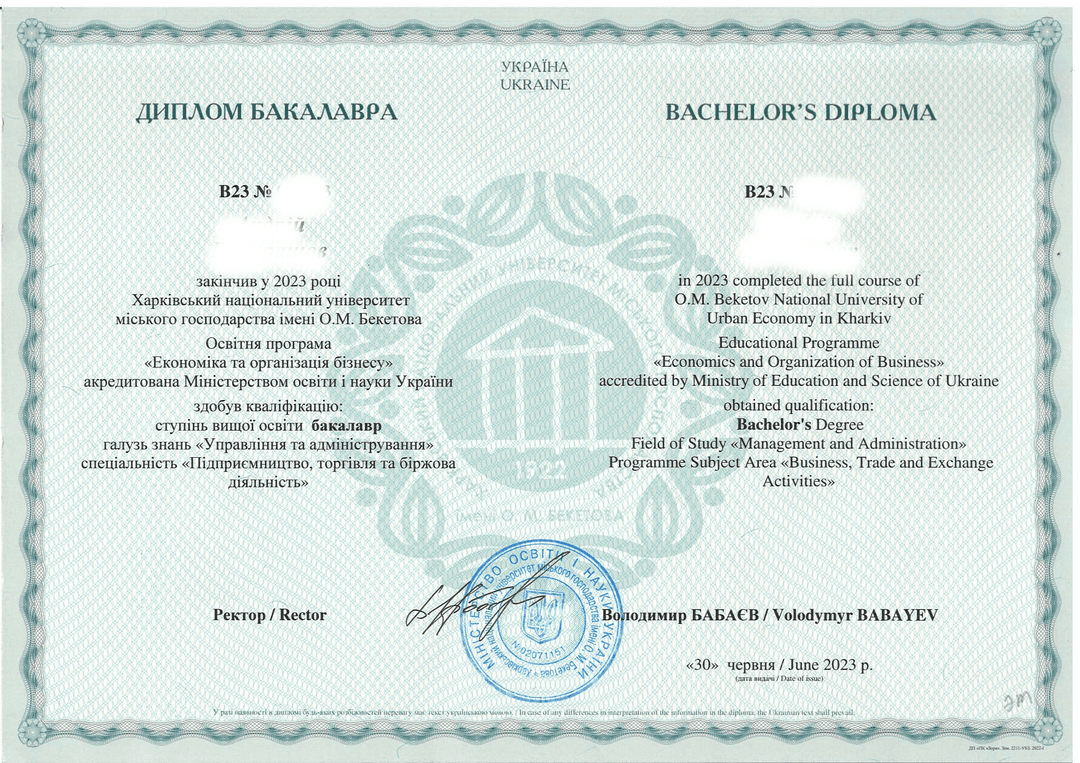The translation of educational documents is a complex and responsible procedure where even the smallest mistake can lead to highly unpleasant consequences. It is for this reason that you should not take risks when preparing such documentation, entrusting the certificate translation or diploma translation exclusively to trusted partners. At Etalon Agency, we are ready to provide comprehensive solutions for any task, offering our services not only in Bratislava but throughout Slovakia, while ensuring affordable rates for all the services we provide.
When is a Diploma and Certificate Translation Needed?
Speaking about those situations when a diploma translation into German, or any other language of the client's choice, the main emphasis should be made on such situations:
- Applying to a foreign university. When enrolling, it’s mandatory to provide translated and certified educational documents.
- Employment abroad. Employers often require diplomas and certificates that confirm the candidate's qualifications.
Nostrification. To recognize a document in another country, diploma nostrification is often an essential aspect.
- Obtaining international grants and scholarships. Official diploma translation is usually required to participate in such programs.
- Immigration processes. A certificate translation into English is required to apply for a visa or residence permit.
- Acquiring professional licenses. In some professions, providing translated diplomas is required to be allowed to work.
- Submitting documents to government institutions. When applying to official institutions in another country, translation is often indispensable.
Specifics of Translating Educational Documents – What Do You Need to Know?
When performing a diploma translation or certificate translation, it is important to correctly transfer not only the content part, such as grades and specialties, but also to observe the formatting (structure), keeping the document completely identical to the original. It’s also important to consider differences in educational systems across various countries, correctly adapting specialized terms (such as names of educational institutions, qualifications, and others) to meet the requirements of the receiving party.
Another important aspect of diploma translation into English is adhering to the correct terminology. Often, the same words can represent different levels of education or qualification in different contexts. Working with such documents requires familiarity with the specifics of educational systems to accurately convey the meaning of the source document, ensuring that it can be successfully submitted to foreign educational institutions or organizations.
How are Diplomas and Certificates Translated?
The actual diploma translation from Ukrainian into Russian or any other language involves a qualified specialist from the company, following these steps:
- Document analysis. A thorough evaluation of the structure and content of the diploma (certificate) for subsequent translation.
- Text translation. The educational document is translated while preserving all terms and professional vocabulary.
- Terminology check. During quality control, special attention is paid to the accuracy of the translation of educational terms and names, considering the specifics of the target country.
- Document formatting. The translation is formatted identically to the original, including the full retention of all tables and elements.
- Final check. A review for errors and compliance with the original document before delivering the translation to the client.
Certification and Apostille – When Are They Necessary?
A notarized diploma translation is required when the document is intended for use abroad and must be officially recognized in another country. Such certification confirms that the translation was done by a specialized professional and guarantees its compliance with the requirements and standards of the destination country. This is especially important when applying to educational institutions, securing employment, or applying for residency.
An apostille is necessary when translated documents are sent to countries that are part of The Hague Convention. This stamp confirms the legal validity and authenticity of the signatures (seals), significantly simplifying the recognition of documents abroad. The main advantage of an apostille is that it eliminates the need for additional certification, while a notarized diploma translation may require a consular visit.
Translation Costs – How Are They Determined and What Affects Them?
The cost of standard translation depends on the volume of information requiring translation and the specifics of the document itself. An important factor is the complexity of the terminology, especially if the diploma or certificate contains specialized educational terms that require careful handling. The language of translation also impacts the price – popular languages are cheaper, while rare ones are more expensive due to the smaller pool of available specialists.
Additional services, such as notary certification, also affect the final cost. Urgency is another factor; if the translation needs to be completed quickly, additional financial expenses should be expected. However, there’s no need to worry – the Etalon team offers flexible and reasonable rates for the entire range of services, making certificate translation into German accessible to everyone.
It’s hard to overestimate the importance of high-quality educational document translation. Each document has its own specifics, requiring professional handling. At Etalon, we are ready to take over the preparation of the necessary documents, offering, in addition to the basic services, the request for educational documents and any related activities of your choice. Please contact us – our team of professionals is waiting for you!







